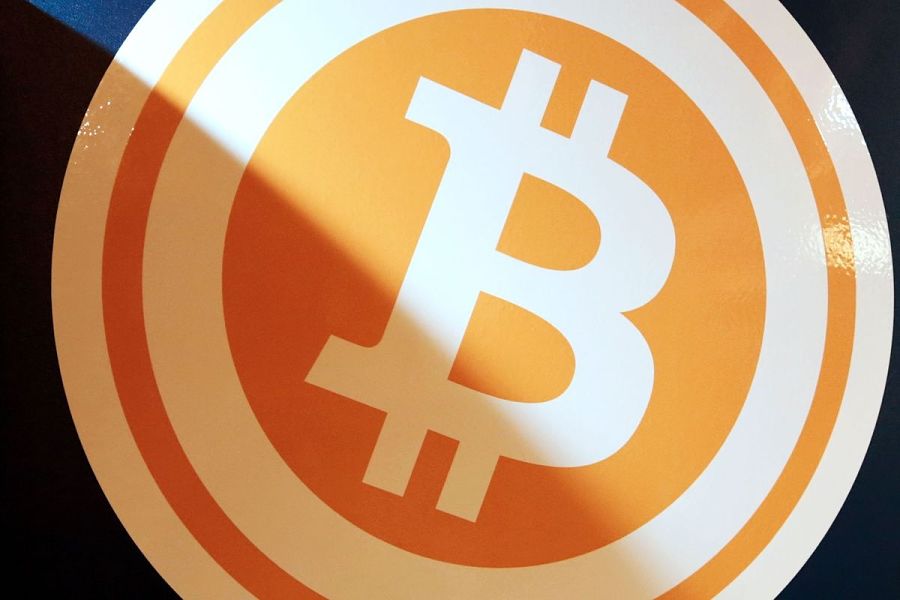

With his cryptic message on cryptocurrencies earlier this week, Securities and Exchange Commission chairman Gary Gensler may have opened the floodgates for ETF providers looking for any opportunity to launch a Bitcoin fund in the U.S.
At least three new filings landed at the SEC Wednesday, a day after Gensler’s Tuesday comments suggesting registration under the Investment Company Act of 1940 has the best chance of gaining approval from regulators. ProFunds, Teucrium and Invesco all filed with the agency to launch ’40 Act cryptocurrency funds within one day of the chairman’s comments.
There were already 15 filings for Bitcoin funds parked at the SEC awaiting approval under the Securities Act of 1933.
The main distinction is that the filings seeking registration under the 1933 Act would invest directly in the digital currency, which is not considered a regulated asset class, while the 1940 Act filings would invest in cryptocurrency futures contracts, which are regulated.
“Apparently, Gensler would feel more comfortable if he knew the ’40 Act was on his side, and if your goal is protection under the ’40 Act, you can’t have a physical Bitcoin fund,” said Eric Balchunas, senior ETF analyst at Bloomberg Intelligence.
“I guess they feel the pros of protections under the ’40 Act outweigh the added costs and everything else that comes with investing through futures contracts,” Balchunas said. “The irony is all the money is still going to the same place. It’s all going to Bitcoin anyway, it’s just adding on these extra layers, middlemen, and probably costs.”
While the ETF space might prefer offering cleaner and more direct exposure to the physical asset, the way that SPDR Gold Shares (GLD) tracks physical gold, offering indirect exposure through futures contracts and other proxies might be the quickest way to get a Bitcoin fund launched in the United States.
In terms of investor appetite, ETF providers can look at the example of Invesco DB Gold (DGL), which was launched in 2007 to track gold futures contracts and has grown to just $83 million, while GLD, which tracks physical gold, is over $60 billion.
“The asset managers would like to offer a physical Bitcoin product but if they don’t think one is going to be approved, or don’t know when it will be approved, filing a fund under the ’40 Act is sort of like sending your spouse to stand in the checkout line next to you because it might be moving faster,” said Todd Rosenbluth, director of mutual fund and ETF research at CFRA.
“I think the race is on to get approval for the first [cryptocurrency] product, and I would presume many of the firms that have a physical Bitcoin product filing will look to file a futures-based product right away,” Rosenbluth said.
Balchunas expects to see at least a dozen new filings for ’40 Act Bitcoin funds over the next few days as U.S. ETF providers scramble to catch up to counterparts in Brazil, Canada and Europe, where there are already more than 60 cryptocurrency funds on the market.
While cryptocurrency funds started trading in Europe six years ago, the closest thing U.S. investors have to exposure through a fund is the $25 billion Grayscale Bitcoin Trust (GBTC), which is a private trust that trades a fixed amount of shares over the counter.
Because Grayscale operates like a closed-end fund, the share price often struggles to track the underlying cryptocurrency. For instance, over the trailing 12 months, Grayscale is lagging the performance of Bitcoin by 95%.
On July 28, Bitcoin Strategy ProFund Investor (BTCFX) launched, representing the first mutual fund investing mostly in crypto futures contracts.
Balchunas said funds filing to invest in futures contracts will likely also invest in the Grayscale fund and some of the Canadian crypto funds.
“The idea that the SEC would be willingly send people [to funds investing in crypto futures contracts, among other things] is crazy,” he said. “Grayscale’s fee is 2%, and Bitcoin funds in Canada aren’t cheap.”

Rajesh Markan earlier this year pleaded guilty to one count of criminal fraud related to his sale of fake investments to 10 clients totaling $2.9 million.

From building trust to steering through emotions and responding to client challenges, new advisors need human skills to shape the future of the advice industry.

"The outcome is correct, but it's disappointing that FINRA had ample opportunity to investigate the merits of clients' allegations in these claims, including the testimony in the three investor arbitrations with hearings," Jeff Erez, a plaintiff's attorney representing a large portion of the Stifel clients, said.

Chair also praised the passage of stablecoin legislation this week.

Maridea Wealth Management's deal in Chicago, Illinois is its first after securing a strategic investment in April.
Orion's Tom Wilson on delivering coordinated, high-touch service in a world where returns alone no longer set you apart.
Barely a decade old, registered index-linked annuities have quickly surged in popularity, thanks to their unique blend of protection and growth potential—an appealing option for investors looking to chart a steadier course through today's choppy market waters, says Myles Lambert, Brighthouse Financial.
